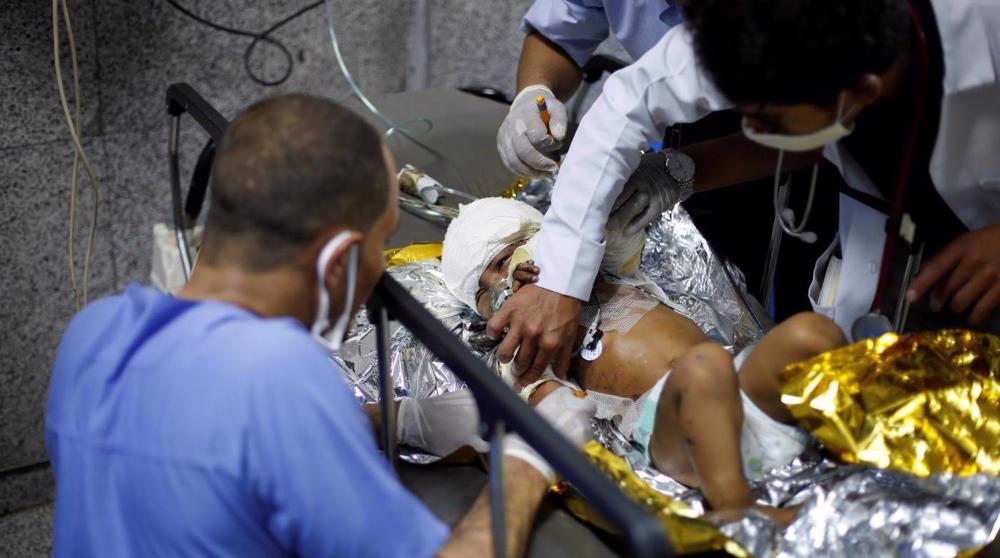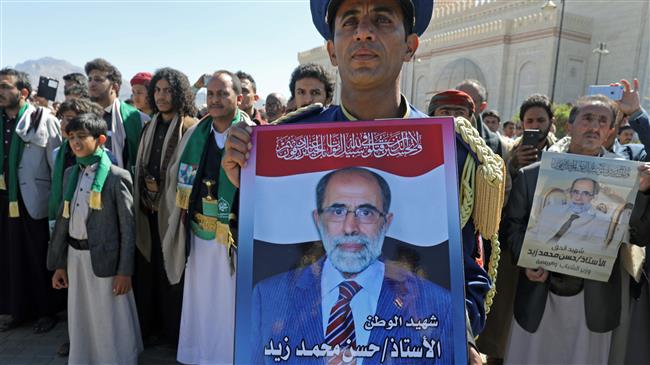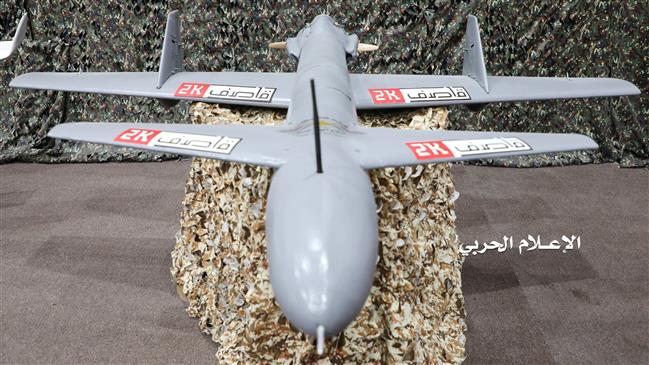US urged to shelve $2.9bn drone sale to UAE over civilian deaths in Yemen, Libya
Amnesty International has called on the United States to drop plans to sell sophisticated armed MQ-9B aerial drones to the United Arab Emirates (UAE), saying that there is evidence of civilian deaths as a result Abu Dhabi’s involvement in war-torn Yemen and Libya.
Philippe Nassif, advocacy director for the Middle East and North Africa at Amnesty International USA, said on Monday that Washington must resolutely refrain from supplying the UAE with arms that could kill civilians in Yemen and Libya.
“The startling fact that the United States government continues its unflinching support of providing weapons that risk adding to the devastating toll of Yemeni civilians unlawfully killed and injured by US-made weapons should shake to the core every person living in this country,” Nassif said.
Last week, the US State Department gave Congress notification of the planned sale of more than a dozen state-of-the-art armed MQ-9B unmanned aerial vehicles to the UAE under a deal worth approximately $2.9bn, less than two months after the Persian Gulf country signed a US-brokered deal to normalize with Israel.
The move comes on the heels of a previous notification of a potential sale of 50 Lockheed Martin F-35 stealth fighter jets to the UAE, in a sale that could amount to $10 billion.
“These US drones could be responsible for UAE attacks that violate international humanitarian law and kill, as well as injure, thousands of Yemeni civilians already bearing the brunt of the one of the world’s most devastating humanitarian catastrophes,” Nassif pointed out.
The UAE is a key party to a Saudi-led coalition of countries waging a devastating military campaign against Yemen since March 2015, with the goal of bringing a former Riyadh-friendly government back to power there.
The US-based Armed Conflict Location and Event Data Project (ACLED), a nonprofit conflict-research organization, estimates that the war has claimed more than 100,000 lives for over the past five years.
Amnesty International further warned against the worrying consequences of US armed drones sale to the UAE, pointing to the extensive evidence that Abu Dhabi used armed drones in Libya in violation of a 2011 UN Security Council arms embargo by operating the aircraft on behalf of renegade military commander General Khalifa Haftar’s rebel forces.
Two rival seats of power have emerged in the country since 2014, namely the internationally-recognized government run by Prime Minister Fayez al-Sarraj, and the parliament based in the eastern city of Tobruk, supported militarily by Haftar’s rebels.
The Libyan rebels are supported by the UAE, Egypt, and Jordan. They are controlling large swaths of Eastern Libya, in the conflict against the internationally backed Government of National Accord (GNA).
VIDEO | Australians rally for Gaza ahead of Christmas festivities
VIDEO | Attacks on Sana'a
Iran reports further drop in annual inflation rate in December
Israel indicts two settlers over suspected spying for Hezbollah
Iran: US airstrikes on Yemen war crimes, violation of international law
Yemeni armed forces down F-18 fighter jet, repel US-UK attack: Spokesman
Iran warns against US-Israeli plot to weaken Muslims, dominate region
VIDEO | Public uproar in US against Israeli regime




















 This makes it easy to access the Press TV website
This makes it easy to access the Press TV website